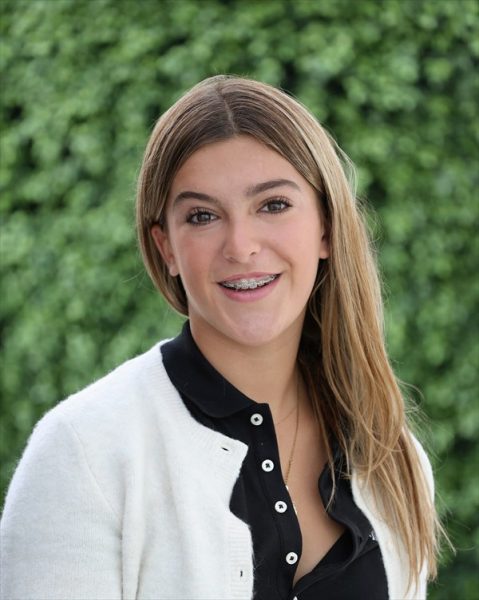Vaccinations not given a shot
October 1, 2014
Liana Lum
News Editor
It began with cold-like symptoms from headaches and fevers to decreased appetite. Within a couple days, bumps resembling blisters and bug bites appeared on junior Jill Cardamon, beginning at the torso and spreading to the rest of her body. When the anti-itch creams were ineffective, she knew she had chicken pox.
“We decided not to have Jillian vaccinated because of personal beliefs,” Jill’s mother Miriam Cardamon said. “The chicken pox vaccine was very new, and available data on any potential long-term side effects was basically non-existent at the time.”

Like Cardamon’s mother, many parents are cautious about vaccinating their children due to potential immunological and adverse side effects.
“People should understand that vaccines really have produced one of the biggest public health benefits over these past many years,” Dr. Cornelia Dekker, a professor of pediatrics at Stanford University School of Medicine, said. “It’s really important to remember where we were before we had immunization available compared to where we are now.”
Vaccinations prevent infectious diseases and strengthen immune responses by exposing the body to a small or weakened amount of the infectious agent. Vaccine development takes 10 to 15 years and involves clinical trials and multiple applications to the Food and Drug Administration, who continues to monitor and evaluate the vaccine after approval.
The Centers for Disease Control and Prevention recommends high school students have a tetanus-diphtheria-pertussis vaccine (Tdap) and polio vaccine as well as the meningococcal vaccine that prevents meningitis, which is especially prevalent in dormitories.
“One of the newer vaccines, which I think is still underutilized among teens, is the human papillomavirus vaccine (HPV),” Dekker said. “It’s also important for adolescents to get their influenza vaccine every fall.”
The HPV vaccine is given in a three-dose series, ideally before young adults engage in sexual activity, protecting them from cancers and infections caused by the virus.
Minors 12 years and older can receive vaccines for sexually transmitted diseases, including the one for HPV, without parental consent, according to a California law passed in 2011.
Infectious diseases, like measles and mumps and rubella, are reappearing in colleges and universities, according to Catherine Martin, Director of the California Immunization Coalition.
“College students who are traveling to and from foreign countries have imported cases of these infectious diseases into college campuses,” Martin said. “People travel so much more than they used to. If we don’t keep up our vigilance in protecting our community through vaccination, these diseases can come back.”
Despite the increased risk of contracting diseases, a higher number of parents are choosing not vaccinating their children, with about 1.8 percent of parents nationwide opting out of vaccines for religious and philosophical reasons, according to the CDC.
The rate of personal-belief exemptions in California jumped by nearly a percentage point since 2008, according to the California Department of Public Health. Beginning this year, California parents are also required to obtain a health care practitioner’s signature, ensuring they understand the pros and cons of not receiving vaccines, before enrolling their children in school.
“One of the most common reasons parents refuse to vaccinate their children is fear that it will cause a side effect or illness,” Dr. Flynne Lewis, a pediatric resident at University of California San Francisco Benioff Children’s Hospital Oakland, said. “Our clinics also have patients who don’t get vaccinated because they don’t have access to medical care.”
Some parents erroneously believe that diseases had already begun to disappear before the development of vaccines or that vaccines can cause life-long disabilities.
“Many of these claims come from social media,” Lewis said. “The autism claim came from a study by British Dr. Andrew Wakefield. He has since had his license suspended and is facing charges of professional misconduct in the UK for incorrect claims he made in this study.”
Others claim that giving a child multiple vaccinations at the same time can overload the immune system.
“All parents want to do what’s best for their children,” Dekker said. “There are some who are misinformed by the media and are concerned that a particular vaccine may cause an adverse reaction or that the timing of vaccines might not be best for their child.”
The Vaccine Adverse Event Reporting System (VAERS) receives about 30,000 cases each year since 1990, of which 10 to 15 percent are identified as serious and associated with “permanent disability, hospitalization, life-threatening illness or death.”
Martin advises families to find a trusted doctor or healthcare practitioner and go by their recommendation, saying the vast majority of doctors recommend vaccinating children and adults following CDC recommended schedules.
“Not vaccinating children definitely affects others,” Lewis said. “They can spread the disease to other children who haven’t been vaccinated or who are unable to get the vaccine due to their age or various medical conditions.”
Close to 322 million cases of childhood illnesses were prevented, and 32,000 American children’s lives were saved between 1994 and 2014, according to the CDC.
“We know that vaccines are not without side effects, typically a fever, sore arm or tiredness,” Martin said. “It is rare that children develop serious side effects, and millions of kids have been safely vaccinated without incidence. We strongly believe that vaccines are safe, effective and save lives.”
“Getting chicken pox has severely affected school work and influenced my other activities,” Cardamon said. “I don’t have a strong feeling about vaccines, but I am more aware of them and infectious diseases.”









